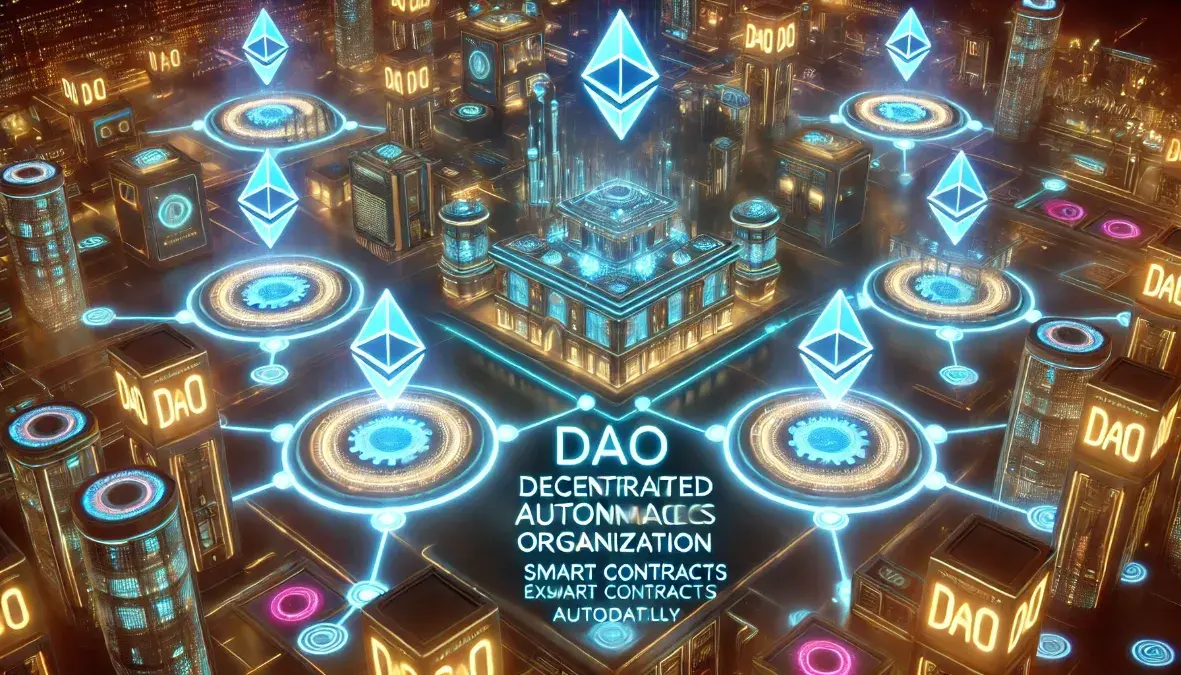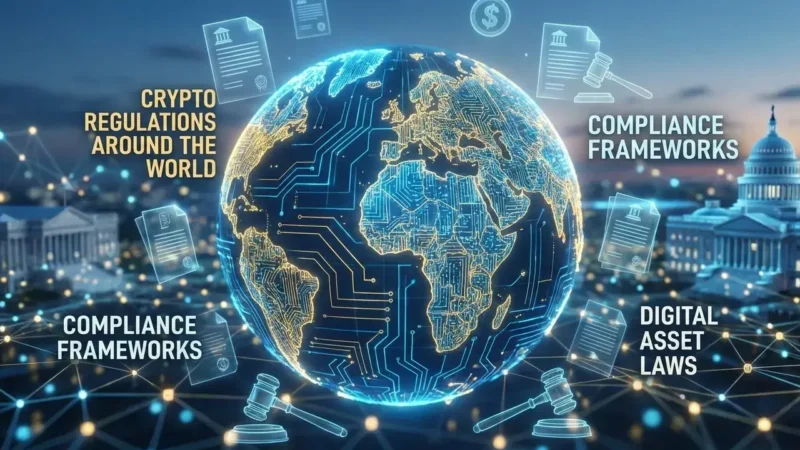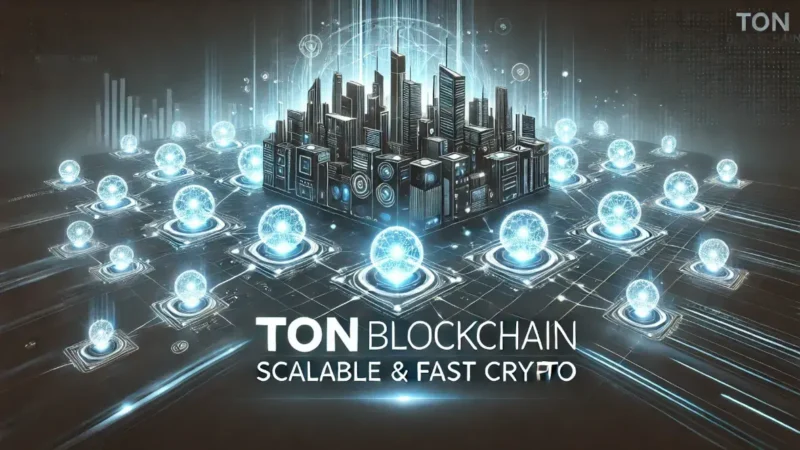Understanding DAOs in the Cryptocurrency Landscape

What is a DAO?
A Decentralized Autonomous Organization (DAO) represents a novel organizational structure that functions on the principles of blockchain technology. At its core, a DAO is designed to operate without centralized control, allowing decisions to be made collectively by its members based on a set of pre-defined rules encoded as smart contracts. These smart contracts facilitate transparency and trust by ensuring that all actions taken by the organization adhere to agreed-upon guidelines, eliminating the need for intermediaries typically found in traditional organizations.
The fundamental characteristic of a Decentralized Autonomous Organization is its decentralization, which fosters a more democratic governance model. Unlike conventional organizations where decision-making power is often concentrated in the hands of a few individuals or stakeholders, a DAO empowers all its members to participate in governance processes. Members usually hold governance tokens that grant them voting rights, enabling them to propose changes, vote on proposals, and influence the direction of the organization. This structure not only enhances community involvement but also aligns the interests of members with the success of the Decentralized Autonomous Organization in crypto, as users are vested in outcomes that affect the entire organization.
Furthermore, DAOs can serve a variety of purposes within the blockchain ecosystem, ranging from investment clubs and venture capital funds to charitable organizations and social initiatives. This versatility illustrates the potential of a Decentralized Autonomous Organization in crypto to disrupt traditional business models and foster innovation through collective action. The operational framework of a Decentralized Autonomous Organization promotes an inclusive environment where all participants can voice their opinions and contribute to meaningful projects, all while adhering to transparent protocols. In essence, the combination of decentralization and smart contracts allows DAOs to thrive as robust entities within the ever-evolving landscape of cryptocurrency.
The Benefits of DAOs
Decentralized Autonomous Organizations are increasingly being recognized for their myriad benefits within the cryptocurrency landscape. One of the primary advantages of DAOs is transparency. Every transaction, proposal, and voting outcome is recorded on a blockchain, allowing all stakeholders to verify actions without reliance on intermediaries. This level of transparency helps build trust within the community, as members can independently audit the organization’s activities, ensuring accountability.
Furthermore, DAOs significantly reduce the centralization of power, a common critique of traditional organizational structures. In a Decentralized Autonomous Organization, decision-making is distributed among all participants rather than being concentrated in a few hands. This democratization empowers community members by giving them a voice in determining the future of the project, which fosters engagement and loyalty. As a result, this allows for a more representative governance model where decisions reflect the consensus of the community.
Another noteworthy benefit of DAOs is their capacity for community-driven decision-making. Rather than relying on a centralized authority, DAOs enable members to propose initiatives, vote on projects, and allocate resources based on collective input. This participative approach often leads to increased innovation and responsiveness to community needs, promoting an environment where ideas can flourish. For example, MakerDAO has demonstrated how community-driven governance can lead to effective management of the stablecoin DAI, with ongoing adjustments made by its users.
Moreover, Decentralized Autonomous Organization can enhance operational efficiency. By automating many of the processes traditionally handled by centralized management, they can reduce overhead costs and streamline decision-making processes. The use of smart contracts, for instance, allows DAOs to execute transactions automatically once certain conditions are met, thereby minimizing delays and enhancing productivity. These attributes position DAOs as a compelling solution in the evolving cryptocurrency ecosystem, promoting a collaborative and efficient environment for users and developers alike.
Challenges and Risks Associated with DAOs
Decentralized Autonomous Organizations represent a transformative shift in organizational structures within the cryptocurrency landscape. However, despite their innovative potential, they face several challenges and risks that could impede their growth and adoption.
One significant challenge pertains to legal uncertainties. The regulatory framework governing DAOs remains ambiguous in many jurisdictions, creating confusion around their legal status and exposure to compliance risks. Without clear guidelines, DAOs may face hurdles in establishing banking relationships, accessing institutional capital, or even navigating tax obligations. This uncertainty can deter investment and limit the scalability of Decentralized Autonomous Organization in crypto.
Another critical issue is governance. While DAOs are designed to promote decentralized decision-making, this very feature can lead to inefficiencies and impasses. Disparate views among members can cause delays or may result in unproductive discussions. Furthermore, if voting mechanisms are not well-structured, they can leave certain stakeholders feeling disenfranchised, ultimately undermining the Decentralized Autonomous Organization’s objectives.
Smart contract vulnerabilities present a further risk. DAOs are heavily reliant on these self-executing contracts, and any flaws or security loopholes can lead to severe financial losses. The infamous Decentralized Autonomous Organization hack in 2016, where an exploit allowed attackers to siphon off a substantial amount of Ether, serves as a stark reminder of the potential perils involved. Incident reviews emphasize the importance of rigorous auditing and testing of smart contracts prior to deployment to mitigate such risks.
To navigate these challenges, the Decentralized Autonomous Organization community should prioritize transparency, create robust governance models, and invest in security measures such as third-party audits. By addressing these risks, DAOs can lay a sturdy foundation for their ongoing evolution in the cryptocurrency landscape.
The Future of DAOs in the Cryptocurrency Ecosystem
As we look ahead into the ever-evolving landscape of cryptocurrency, Decentralized Autonomous Organizations are poised to play an increasingly pivotal role. The rising popularity of DAOs is not merely a fleeting trend; rather, it signifies a transformational shift in how governance and decision-making are approached in the digital economy. Emerging as crucial components of decentralized finance (DeFi), DAOs empower members to collaboratively make decisions and manage resources, thus embodying the core principles of decentralization and democratization.
Anticipated regulatory developments will significantly impact the future of DAOs in crypto. As governments and regulatory bodies begin to understand the structure and implications of DAOs, a clearer framework may emerge, providing necessary oversight while also fostering innovation. This potential regulation could lead to greater legitimacy and security within the Decentralized Autonomous Organization space, attracting institutional participation and investment. This interplay between governance and community-led initiatives will further steer the direction of decentralized finance and other blockchain innovations.
In addition to their potential regulatory evolution, DAOs are expected to evolve alongside emerging technologies such as artificial intelligence and machine learning. The integration of these technologies with DAOs could streamline operations, enhance transparency, and elevate decision-making capabilities. For instance, an AI-driven Decentralized Autonomous Organization could analyze large datasets to deliver insights, enabling members to make more informed decisions that align with the organization’s objectives. Furthermore, the symbiotic relationship between DAOs and other blockchain innovations, such as non-fungible tokens (NFTs) and layer-2 scaling solutions, may expand the operational scope and business models, creating unique opportunities for growth.
Stay informed, read the latest crypto news in real time!
In conclusion, the future of Decentralized Autonomous Organizations in the cryptocurrency ecosystem appears promising. With growing popularity, evolving regulations, and integration with cutting-edge technologies, DAOs are well-positioned to influence the trajectory of modern finance and enterprise management, solidifying their role as fundamental elements in the blockchain framework.







2 thoughts on “Understanding DAOs in the Cryptocurrency Landscape”